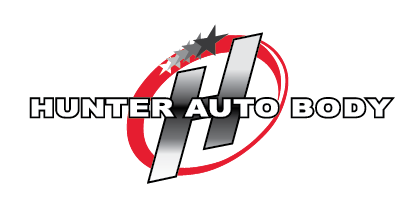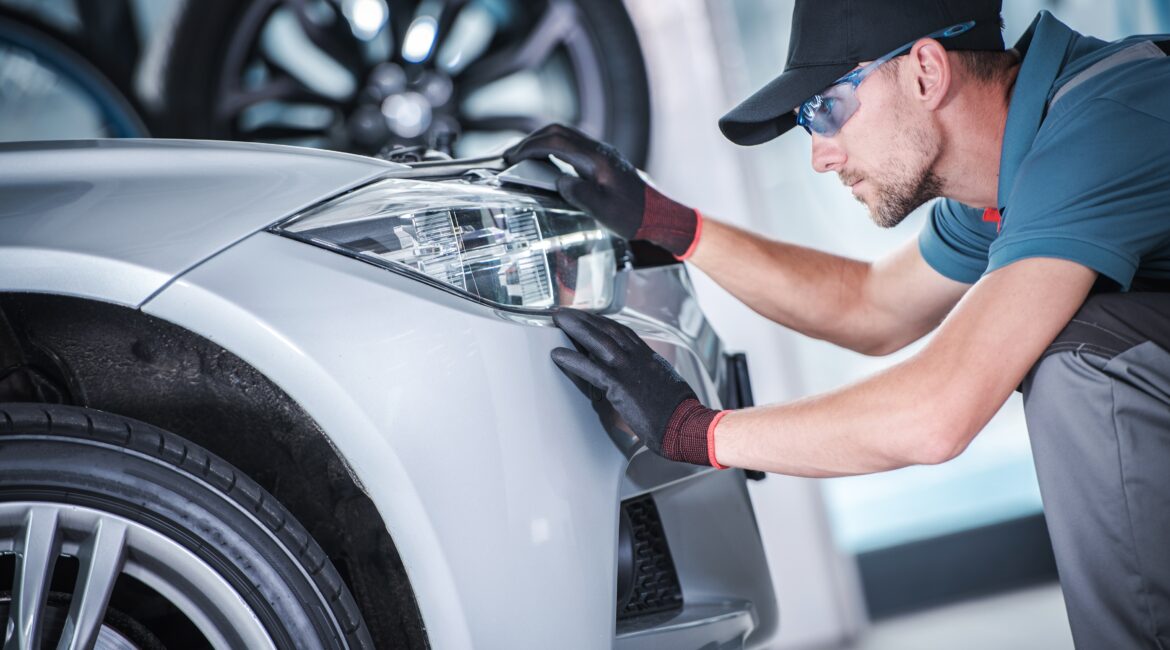Used cars significantly outsell new car purchases more than you would think. Car dealers are constantly searching for good clean, vehicles between 2-3 years old to list as a certified pre-owned vehicle. Off-lease vehicles make the best candidates because they are usually low mileage, are traded in two to three years, and you the consumer have paid for all the depreciation through your lease payments. In order for these cars to sell and be OEM certified, they have to have all OEM parts in them, and any collision repairs must be performed to OEM specifications.
So why is this a problem as it relates to your collision repair right now?
Most insurance companies are probably only willing to use aftermarket parts on your repair. It may even say so in your insurance policy. Hunter Auto Body will always do our best to write your estimate with OEM parts. Our preference is never to use aftermarket parts because they are like anything else off brand: not quite right, lower quality and while they save you money, usually slightly off in measurements putting you at risk. Chrysler feels so strongly about aftermarket parts that they take it a step further and wrote a position statement that says specifically not to use them.
This statement causes more implications than you might think. Not only does it put us, the body shop, in tough spot, it also puts you in a bind as a consumer because the insurance company will likely push back on what they are going to pay for. When Insurers refuse to reimburse the consumer (you) for OEM parts after the first one to two years, it creates problems for you if you are in the third year of your lease. And the average lease term in America right now id just over three years, so that is most leases.
Vehicle life plays an important role in this conversation. Some insurance companies do allow full reimbursement for OEM parts and procedures for vehicles, but only in their first three years. Typically when they state “the first three years” the date is tied to the date of manufacture. The issue with this date is that no one buys a car in the same month it was built because the time it takes for cars to get shipped from the factory and then to your dealer and then to your driveway. All the while, the clock is ticking on your insurance policy coverage in regards to vehicle life. So let’s say you leased a vehicle at the end of a model year that sat on a dealer lot for four months. It could be almost a year old when you buy it, but you may have only owned it a few months. If you get into an accident into the first two years of ownership, It could be just past the three years of vehicle age that the policy covers.
And what about if the accident was not your fault?
Well, some insurance companies may refuse to reimburse you for OEM parts even though their customer is the one that hit you. You might have to fight the insurance company to get what is rightfully due to you, or you may have to file the claim through your own insurance company and go after the other person’s insurance company, and who wants to have to deal with all of that?
Want to see exactly what Chrysler (FCA) ‘s position is on the use of non-OEM parts and used or salvage parts? Let’s break it down for you below:
“FCA US LLC vehicles, systems, and components are engineered, tested and manufactured to protect vehicle occupants based upon both government-mandated and internal corporate requirements relative to durability, NVH (noise/vibration/harshness), occupant protection and vehicle safety. The overall structural integrity of the vehicle is dependent on its inherent design specifications,” FCA wrote in its November 2019 structural repair position.
What Chrysler is saying there is that all of their vehicles, their systems, and their parts have been tested and built specifically to protect the people in the vehicles.
“Sheet metal and glass are critical elements in the design of specific crush zones that allow the energy of a collision to be absorbed in a predictable way and maximize the effectiveness of the restraint system to protect the occupants. The use of parts not specifically designed and tested by FCA US LLC may compromise the integral balance between these safety systems. Only Authentic Mopar® Repair Parts and glass are designed, engineered, manufactured and tested to FCA US LLC internal and government-mandated standards and are the only ones equivalent to the originally installed parts. FCA US LLC does not approve of or recognize structural repair procedures where Authentic Mopar Parts are not used for Chrysler, Dodge, Jeep® and Ram Brand vehicles. Any repairs performed not using Mopar Parts, and not following published repair guidelines and procedures, may expose current or future vehicle owners and occupants to unnecessary risk.”
What Chrysler is saying there is that all of the parts, including the glass, have been tested and designed to work to their specifications and to those of the Federal crash test standards. However, aftermarket parts are not built the same way and are not subject to meeting those same standards.
Chrysler also points out that any repairs performed outside of their procedures could put the safety of vehicle occupants at risk.
“Many factors can influence the integrity and quality of salvage parts including but not limited to weather, previous damage, improper removal or transfer of parts,” FCA wrote in another Nov. 20, 2019, document. “Because of this, FCA US LLC does NOT approve the use of salvage or recycled parts in the event that collision repairs are necessary. …
“Using salvage parts can lead to the following events:
• Compromised crush zones caused by previous repairs.
• Additional installation time due to variations in fit and finish.
• Exposure to adverse elements and conditions that have not been considered by FCA US LLC.
• Additional repair time based on variations in storage and delivery practices.”
“FCA US LLC limited warranties only apply to genuine FCA US LLC original equipment parts. FCA US LLC is not responsible for any costs associated with part failure caused by the use of any parts other than FCA US LLC genuine replacement parts.”
This last group of statements basically say that anything but a Chrysler OEM part and repair procedure is not guaranteed to keep you safe and that it is not warrantied by Chrysler. So if any of these parts fail while your vehicle is under warranty, Chrysler will not have to honor your vehicle warranty, and that is pretty significant and not known by most collision repair customers.
Lucky for you, we only follow Chrysler (FCA) OEM repair procedures here at Hunter Auto Body.
And all of our work carries a full warranty. If you need collision repair on your leased Chrysler, Dodge, RAM or Jeep, simple click to schedule your appointment.






